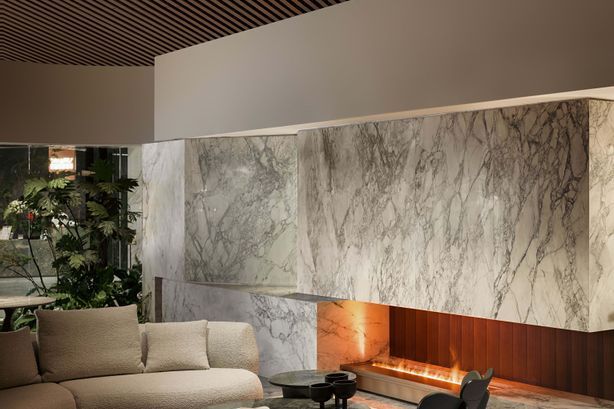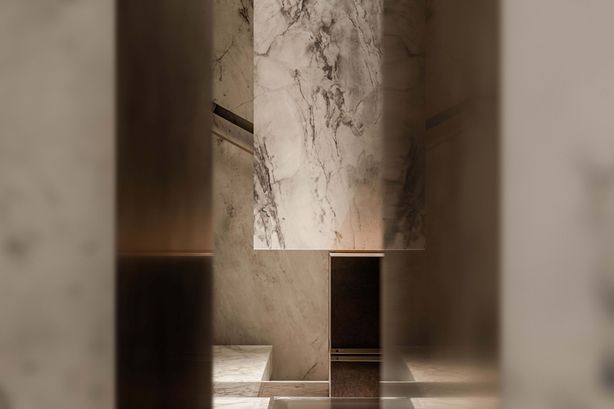7 Reasons to Choose Architectural Stone Surfaces for Your Next Project

More versatile than natural stone
Unlike natural stone such as marble, which can only be used in specific applications, architectural surfaces such as Neolith can be used anywhere from kitchens, bathrooms, floors and outdoor kitchens to facades, allowing you to push the creative boundaries in your residential projects, or create a cohesive aesthetic that starts right from outside the front door.
Unlike marble and granite, architectural stone surfaces are also lightweight, and easy and fast to fit, minimising installation time and hassle.
Seamlessness is another impressive feature; while natural stone is only available in limited slab sizes, making visible and often unsightly joins unavoidable across large applications, architectural stone surfaces come in super-size slabs up to 3600x1200 millimetres in sizes, so you can design seamless, joint-free kitchen benchtops, feature walls and more.
Natural & eco-friendly
Sustainability is a priority for homeowners today, with growing numbers favouring products and finishes that are not only gentle on the earth, but won’t off-gas after installation so they can enjoy a healthy home.
Premium architectural surfaces are an environmentally friendly choice for interiors and exteriors. Neolith surfaces are made from 100 per cent natural raw materials, including clays, feldspar and natural mineral oxides, with some colours containing up to 98 per cent recycled materials. Bonded with heat rather than resins, Neolith contains minimal amounts of crystalline silica between 0 and 9 per cent, making it safer for the whole value chain.
In addition, the natural composition of Neolith means that it also won’t emit toxic fumes into the air when exposed to fire or extremely high temperatures.
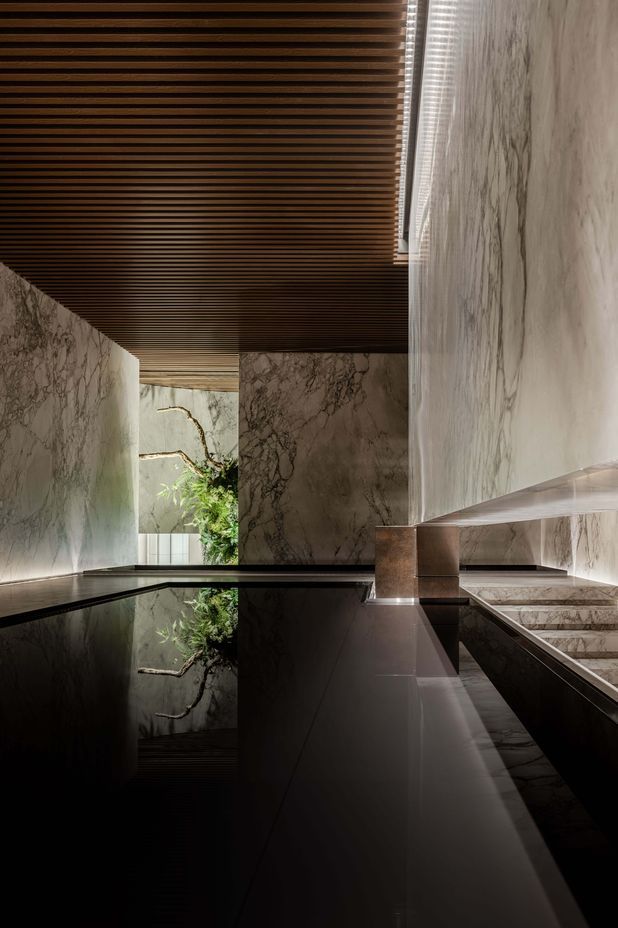
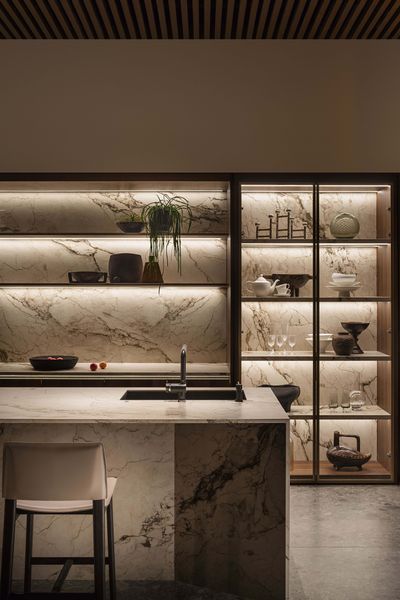
Stronger than natural stone
The extremely high temperatures used in the making of architectural surfaces like Neolith make it stronger than marble and other types of natural stone. Plus, it’s highly resistant to damage, resulting in a material that’s perfect for high-traffic areas like kitchens and bathrooms.
More design options
Unlike natural stone, which is limited in terms of colour and patterning, not to mention frustrating to colour match, with architectural stone there is a wide array of options. Neolith colours and textures are drawn from nature, and range from gentle whites and warm greys to intricate marbling.
Less maintenance than stone & more hygienic
In a busy kitchen, clients want work surfaces that are durable, hardwearing and will cope with the inevitable knocks and spills of everyday life – plus, look incredible for years to come. While natural stone is undeniably beautiful, it requires careful handling and ongoing maintenance to preserve its good looks.
Premium architectural stone surfaces are the smart, low-maintenance alternative. Neolith surfaces withstand heat, scratches, stains and UV radiation, and require minimal upkeep to look and perform brilliantly for decades.
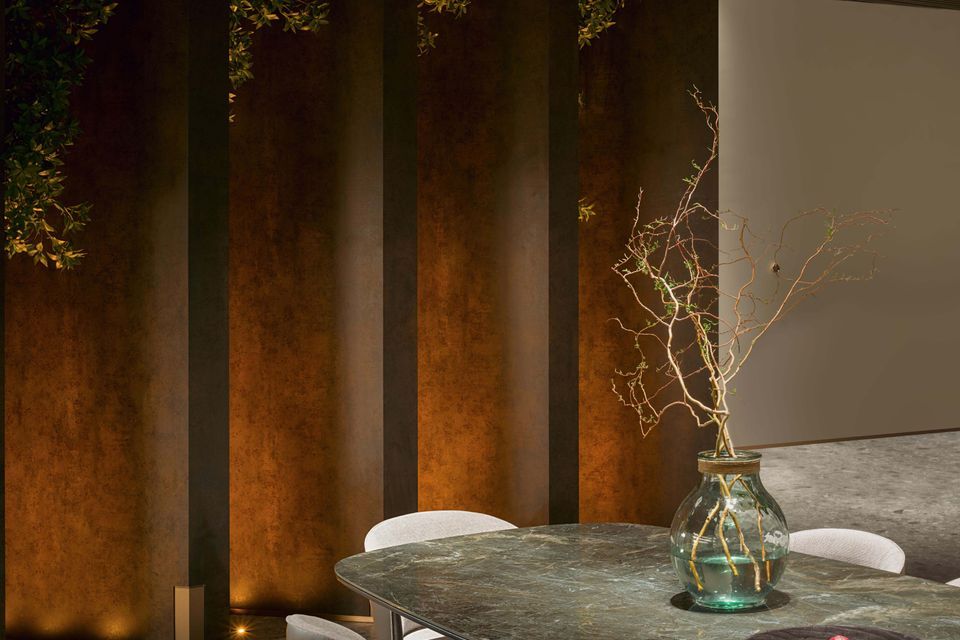
No sealing required – ever
Natural stone like marble and granite are highly porous and require regular sealing to perform in busy kitchens and bathrooms. With a porosity of less than 0.08 per cent, high-performance Neolith is impervious to moisture and never needs to be resealed. This also makes it more hygienic as it resists bacteria that can cause disease and trigger allergies.
Neolith takes its commitment to kitchen hygiene one step further with exclusive NeolEAT technology; the material itself includes protection that helps preserve food safety by preventing the growth of bacteria like Listeria monocytogenes and Salmonella, which are common food safety threats.
Fully recyclable
The 100 per cent natural composition of architectural surfaces like Neolith means it can be fully recycled and reduced to its aggregates at the end of its life cycle.
Unlike natural stone such as marble and granite, which is dug from the earth in a way that produces high levels of water and air pollution, sintered stone requires fewer raw material, meaning there is less land erosion during mining. And because it’s largely made from recycled materials, rather than plundering the earth’s precious natural resources, it gives discarded products a second life.
Carbon dioxide emissions are another major environmental concern with natural stone, given their highly polluting extraction process and the long distances these heavy materials need to travel from mountainous regions to point of sale.
Neolith sintered stone is lightweight and easily transportable. The company was also the first in its sector to achieve full carbon neutral status in 2019. It uses 100 per cent renewable electricity, up to 100 per cent of water consumed is recycled and 90 per cent of waste generated is recycled.
Healthy, sustainable, highly durable and stunning to behold – architectural stone surfaces are a natural choice for today’s forward-thinking architectural projects.
